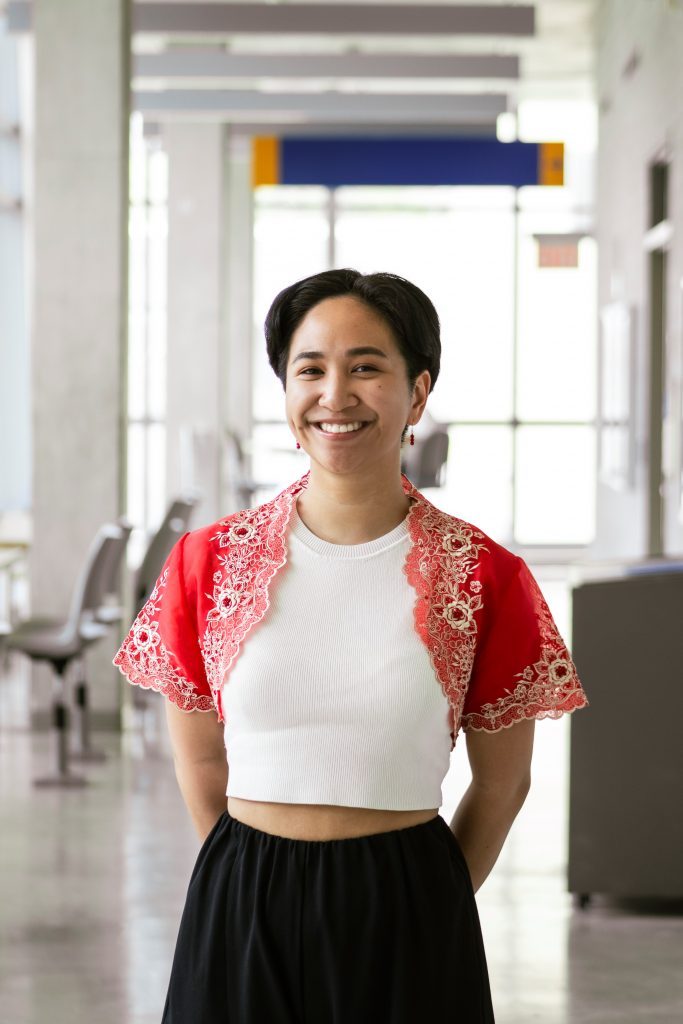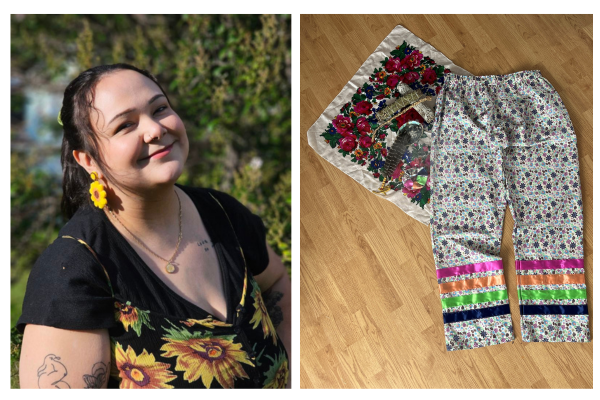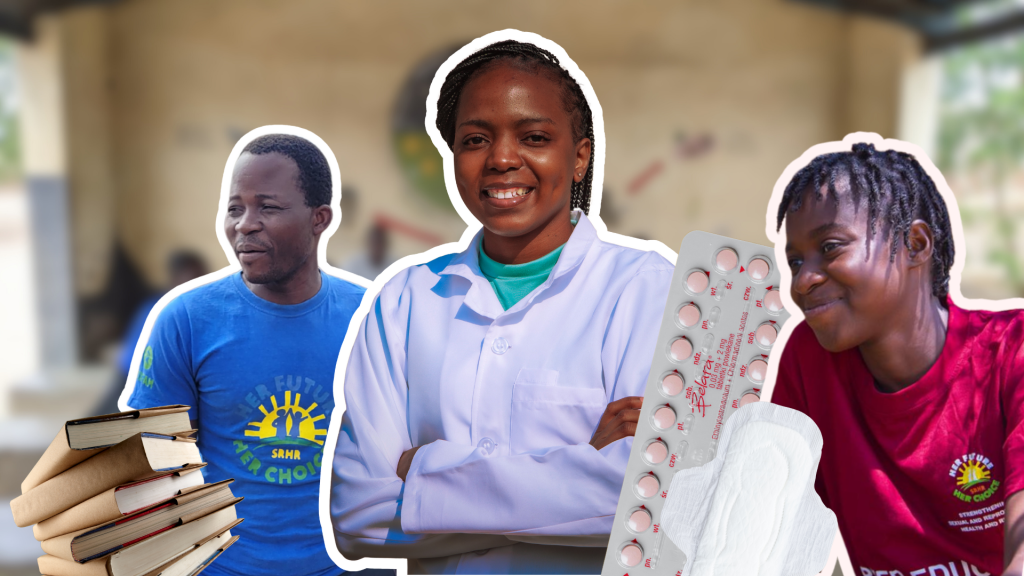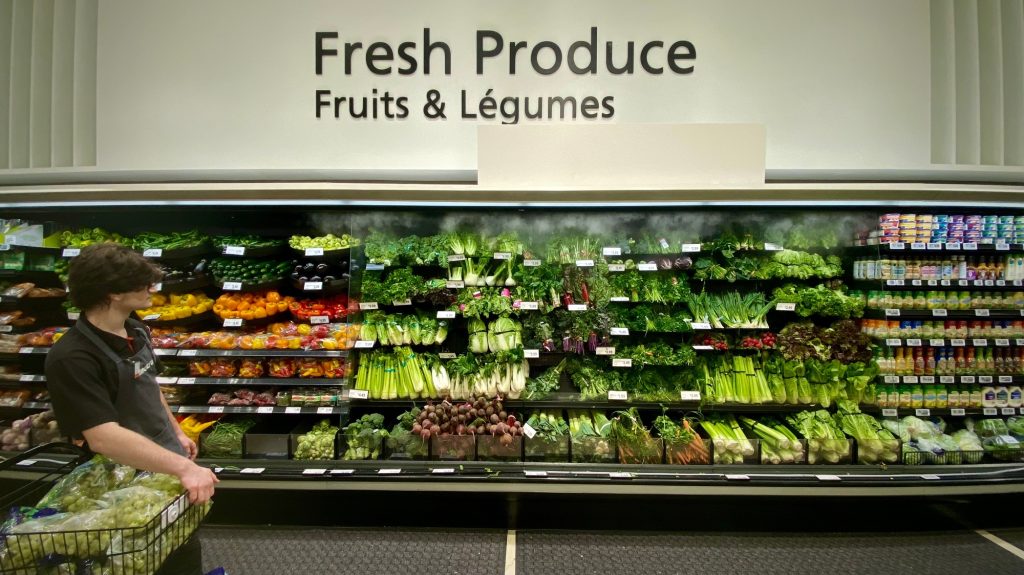Announcing the 2025 SRHR Grant Recipients Empowering Communities
Oxfam Canada is pleased to announce the second round of the Stand Up for SRHR Financial Support for Community-Based Sexual and Reproductive Health and Rights (SRHR) Initiative recipients, generously funded by Global Affairs Canada. This initiative is part of the seven-year Stand Up for SRHR program which aims to strengthen SRHR in Uganda, Mozambique, and Canada, directly reaching over 370,000 people, particularly young women and girls.
The Stand Up program aims to raise awareness about sexual and reproductive health and rights across Canada by supporting community-based public engagement initiatives spearheaded by youth (aged 18 to 29) and women's rights or youth-led organizations.
We are thrilled to announce this year's community-based initiative's five new projects and recipients.
Youth Recipients
 Jocelle – Usap Tayo (Let’s Talk)! - The Sex Talk You Never Got
Jocelle – Usap Tayo (Let’s Talk)! - The Sex Talk You Never Got
The Sex Talk You Never Got project is a two-part SRHR workshop series for Filipino youth aged 18-29. Part 1 will be a virtual “Sexual Health 101” presentation along with a Q&A with a community speaker. Building on Part 1, Part 2 will be an in-person creative workshop to deepen the dialogue on SRHR and make zines on their sexual health journeys, along with lessons and resources learned from the workshops. Participants will also be able to assemble a small sexual health package at a station with a variety of supplies such as condoms, lube, and dental dams.
Starus – Voices of Migrant Sex Workers
Voices of Migrant Sex Workers will connect the experiences and resilience of youth LGBTQ+ migrant sex workers to broader SRHR issues. Through two interactive walking tours, this initiative will expose systemic barriers, criminalization, and exclusion that limit access to SRHR services while celebrating the community’s resilience, leadership, and collective strategies for navigating systems, sharing knowledge, and accessing resources. One tour will engage community members, fostering knowledge-sharing and connection, while the second will educate key stakeholders—including service providers, policymakers, and public health professionals—on the harmful effects of certain bylaws, anti-tracking policies, and systemic stigma. By grounding these discussions in the lived realities of LGBTQ+ migrant sex workers, particularly within Asian communities, this initiative will build public awareness, challenge institutional barriers, and strengthen advocacy for equitable, community-led SRHR access.
Syndel – Ribbon Pants Workshop
The Ribbon Pants Workshop will combine hands-on learning, cultural education, and community engagement to provide participants with both a meaningful artistic experience and a deeper understanding of Two-Spirit history, gender inclusivity, and the significance of ceremonial attire. The activities are designed to foster connection, skill-building, and self-expression, ensuring that all participants—regardless of prior sewing experience—feel empowered to create their own ribbon pants. The work undertaken in these workshops and the accompanying cultural reclamation is not just about sewing — it is about resisting gender-based oppression, creating visibility for Two-Spirit youth, and promoting arming spaces where all identities are celebrated. These workshops will not only provide practical skills but also serve as a foundation for healing, empowerment, and community transformation by ensuring that Two-Spirit and gender-diverse individuals see themselves reflected in Indigenous culture.
Organizations
Yukon Status of Women Council
This grant will help document Yukon First Nation feminist art as it intersects with sexual and reproductive health, including gathering images of various current works of Indigenous feminist art accompanied by a curated anthology of stories from Yukon First Nation women, two-spirit, trans, and queer folks. Some examples of potential works of art include: beaded vulvas, porcupine quill diagrams of the womb, baby carrying belts depicting the ceremony of placenta, and beaded examples of cervical dilation in childbirth. The accompanying stories will explore how residential schools and other institutions, such as sanitariums, have intergenerationally impacted Indigenous people’s experiences with menstruation, physical and sexual health, sexual identity, and sexualized violence. It is expected that the stories will touch on themes of Indigenous and Indigiqueer feminisms, eugenics, violence against Indigenous women and girls, colonialism, sex positivity, and reproductive justice.
Aunties on the Road: Indigenous Full Spectrum Doula Collective c/o Minwaashin Lodge: Indigenous Women's Support Centre
Aunties on the Road will host monthly culture based and youth-lead virtual and in-person workshops to Indigenous youth living in the Ottawa-Gatineau region on unceded Algonquin and Mohawk Territories on topics relating to sexual and reproductive health. With this funding, the Aunties aim to instill community and cultural knowledge and teachings to support connections for Indigenous youth to their communities, cultures and land and work against the systemic impacts of colonialism and assimilation. The topics of the workshops will be guided by the needs and interests of community members and of traditional seasonal practice.
The Stand Up For SRHR project is undertaken with the financial support of the Government of Canada, provided through Global Affairs Canada, and the generous Canadian public.


